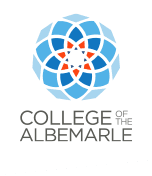Emergency Medical Services Program
Emergency Medical Services (EMS) training courses meet both the initial training and Workforce Development and Career Readiness (WDCR) requirements for medical responders within College of The Albemarle’s (COA) service area.
Looking to earn a degree in EMS? Check out COA’s Emergency Medical Science – AAS program.
The North Carolina Office of Emergency Medical Services works with the college to develop classes for individuals interested in joining a first responder department, rescue squad and/or EMS agency. The classes we offer include Emergency Medical Responder (EMR), Emergency Medical Technician (EMT), Advanced Emergency Medical Technician (AEMT) and Paramedic.
For additional information on class prerequisites and qualifications, please call 252-335-0821 ext. 2519.
WDCR is provided by COA through each of the county’s EMS agencies. Please contact the appropriate agency for class dates and times.
If your agency wishes to hold a special class of any kind or if you have questions about our EMS WDCR classes, please contact us.
Class Information
Emergency Medical Responder (EMR)
Emergency Medical Technician (EMT)
Paramedic
Accreditation Status
COA’s Emergency Medical Services – Paramedic program is accredited by the Commission on Accreditation of Allied Health Education Programs (www.caahep.org) upon the recommendation of the Committee on Accreditation of Educational Programs for the Emergency Medical Services Professions (CoAEMSP).
Contact CAAHEP:
Commission on Accreditation of Allied Health Education Programs (CAAHEP)
9355 – 113th St. N, #7709
Seminole, FL 33775
727-210-2350
www.caahep.org
Paramedic Program Outcomes
| Cohort | Retention Rate | NC Paramedic Exam Pass Rate | Job Placement |
|---|---|---|---|
| 2018 | 41.4% | 100% | 100% |
| 2019 | 60% | 100% | 100% |
| 2020 | 45.5% | 100% | 100% |
| 2021 | 75% | 91.7% | 91.7% |
| 2022 | 77.8% | 100% | 85.7% |



